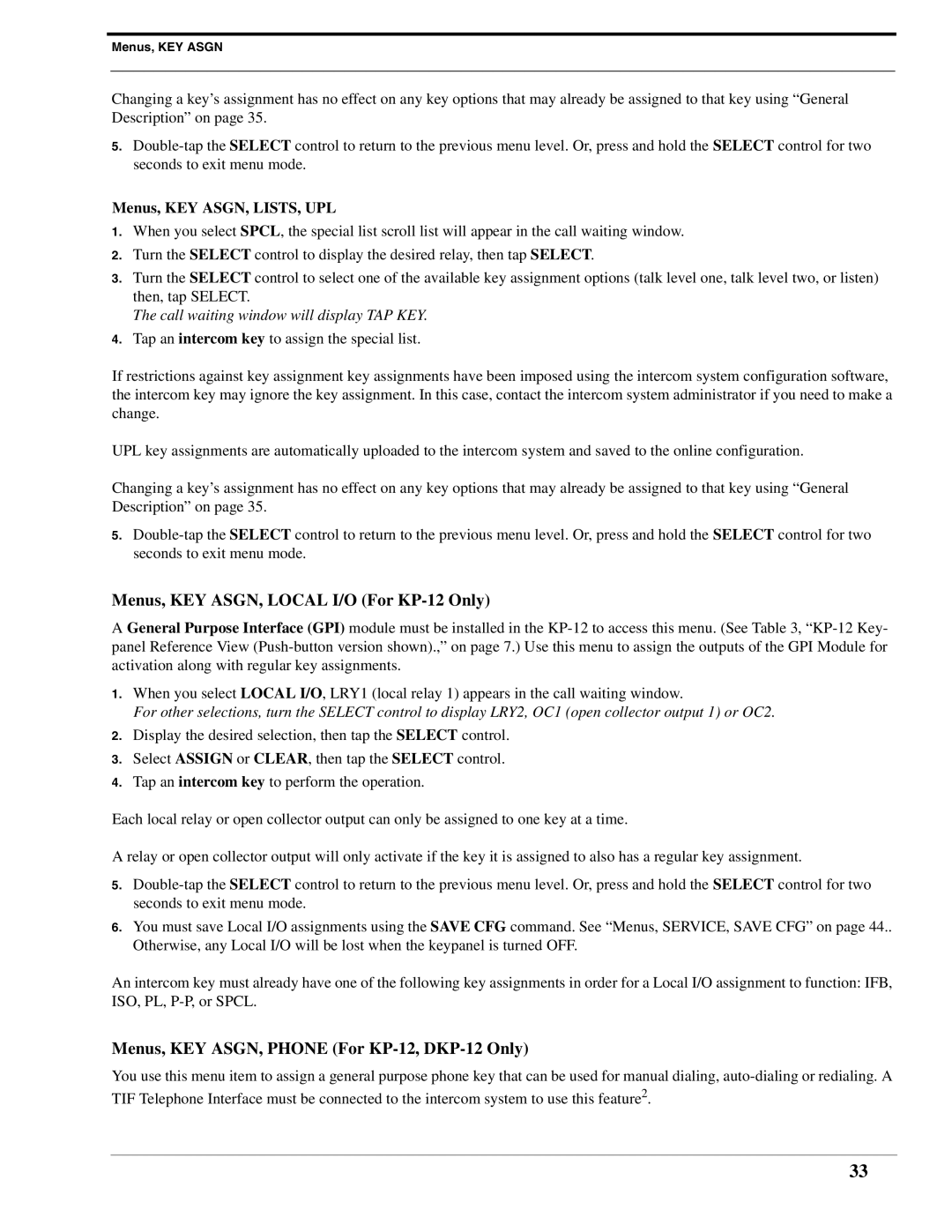
Menus, KEY ASGN
Changing a key’s assignment has no effect on any key options that may already be assigned to that key using “General Description” on page 35.
5.
Menus, KEY ASGN, LISTS, UPL
1.When you select SPCL, the special list scroll list will appear in the call waiting window.
2.Turn the SELECT control to display the desired relay, then tap SELECT.
3.Turn the SELECT control to select one of the available key assignment options (talk level one, talk level two, or listen) then, tap SELECT.
The call waiting window will display TAP KEY.
4.Tap an intercom key to assign the special list.
If restrictions against key assignment key assignments have been imposed using the intercom system configuration software, the intercom key may ignore the key assignment. In this case, contact the intercom system administrator if you need to make a change.
UPL key assignments are automatically uploaded to the intercom system and saved to the online configuration.
Changing a key’s assignment has no effect on any key options that may already be assigned to that key using “General Description” on page 35.
5.
Menus, KEY ASGN, LOCAL I/O (For KP-12 Only)
AGeneral Purpose Interface (GPI) module must be installed in the
1.When you select LOCAL I/O, LRY1 (local relay 1) appears in the call waiting window.
For other selections, turn the SELECT control to display LRY2, OC1 (open collector output 1) or OC2.
2.Display the desired selection, then tap the SELECT control.
3.Select ASSIGN or CLEAR, then tap the SELECT control.
4.Tap an intercom key to perform the operation.
Each local relay or open collector output can only be assigned to one key at a time.
A relay or open collector output will only activate if the key it is assigned to also has a regular key assignment.
5.
6.You must save Local I/O assignments using the SAVE CFG command. See “Menus, SERVICE, SAVE CFG” on page 44.. Otherwise, any Local I/O will be lost when the keypanel is turned OFF.
An intercom key must already have one of the following key assignments in order for a Local I/O assignment to function: IFB, ISO, PL,
Menus, KEY ASGN, PHONE (For KP-12, DKP-12 Only)
You use this menu item to assign a general purpose phone key that can be used for manual dialing,
33
